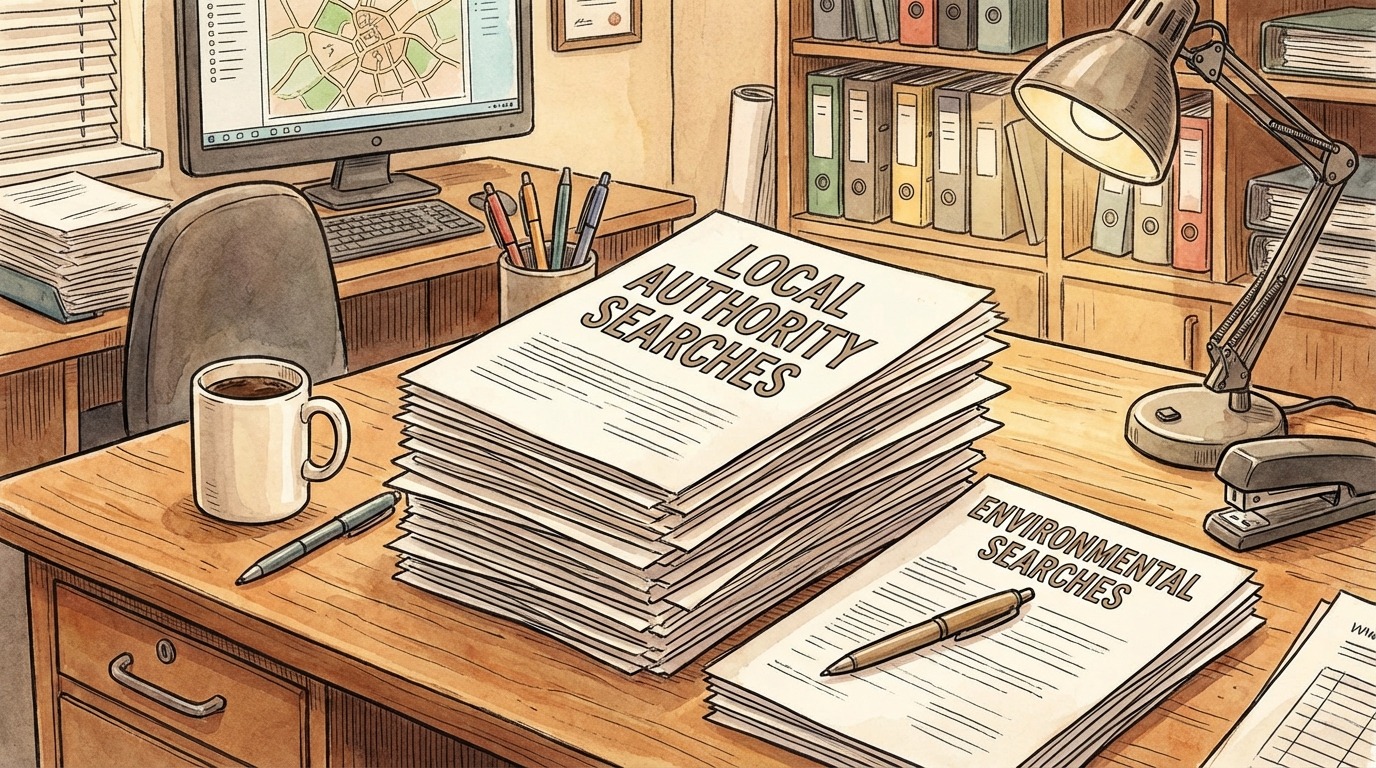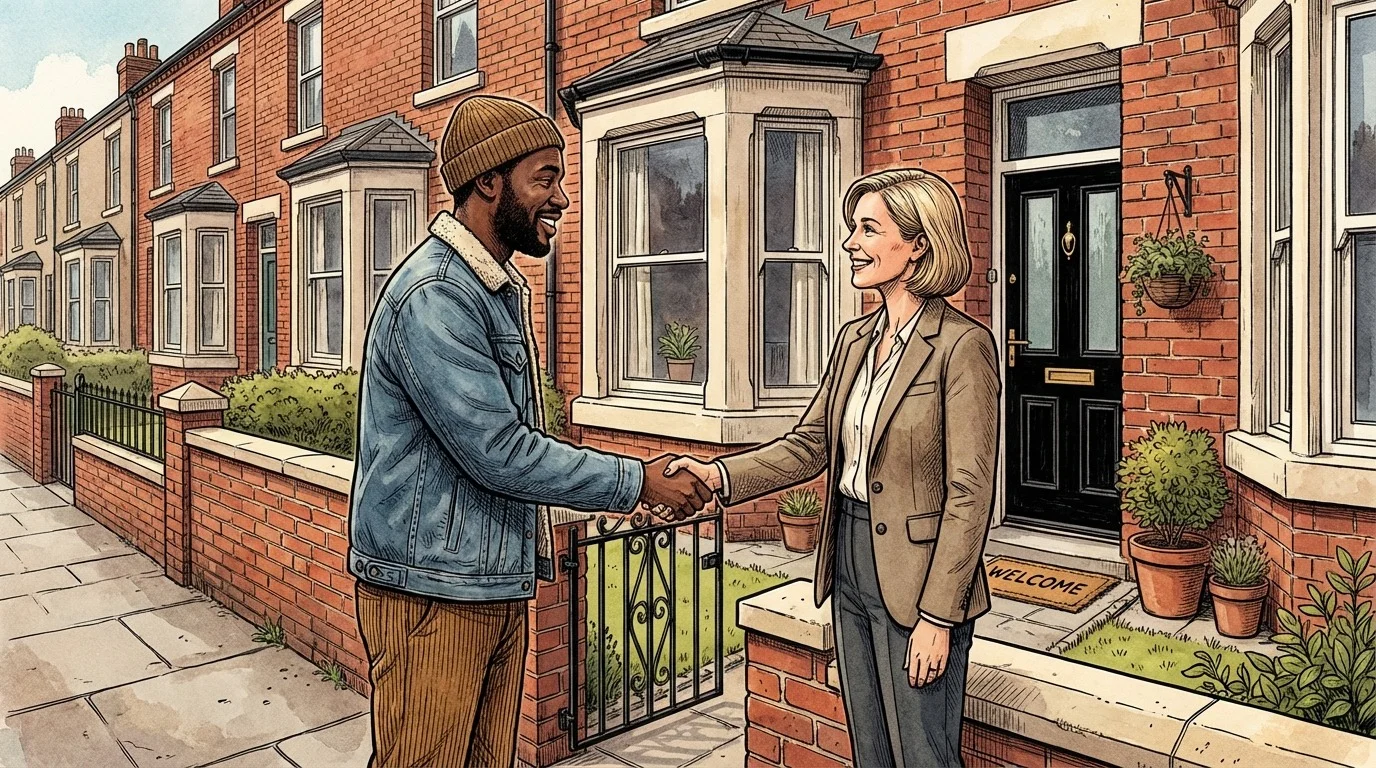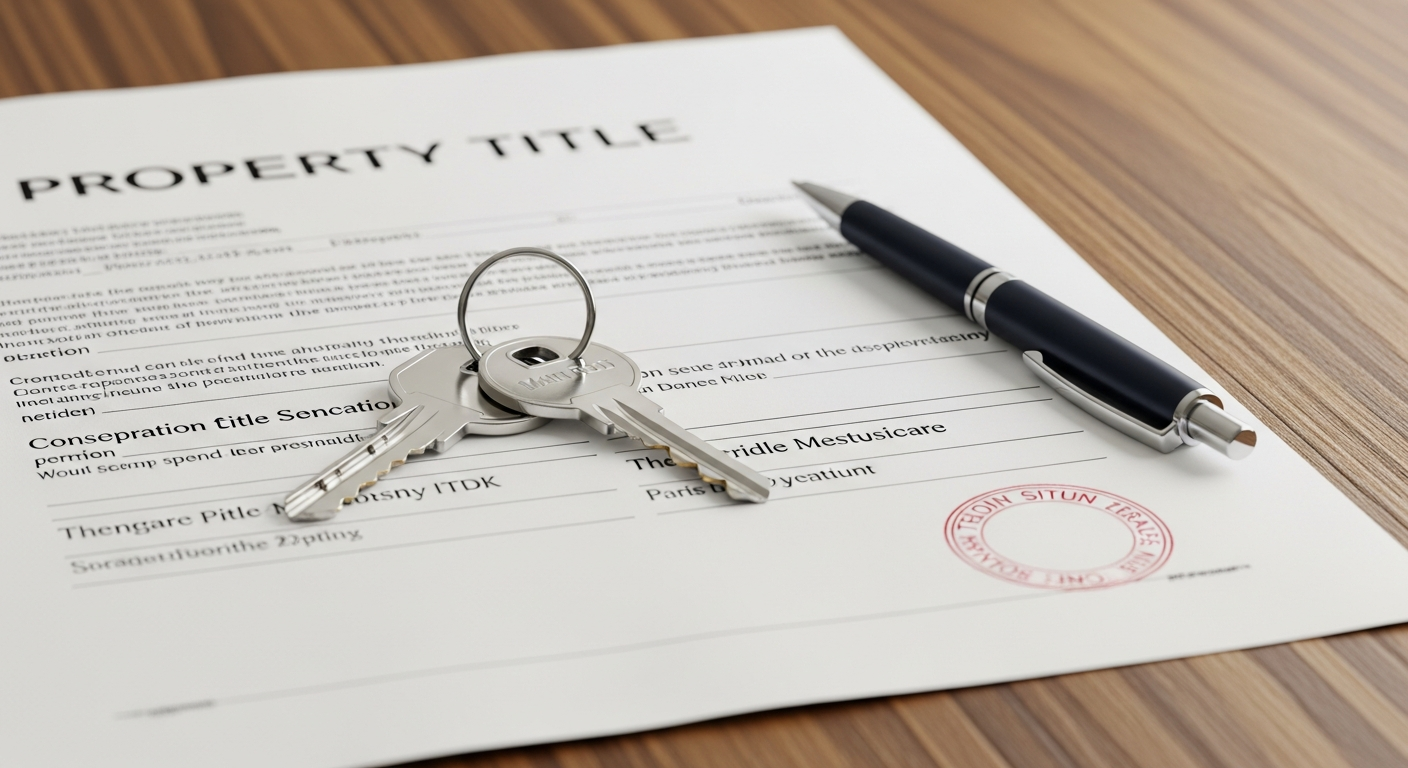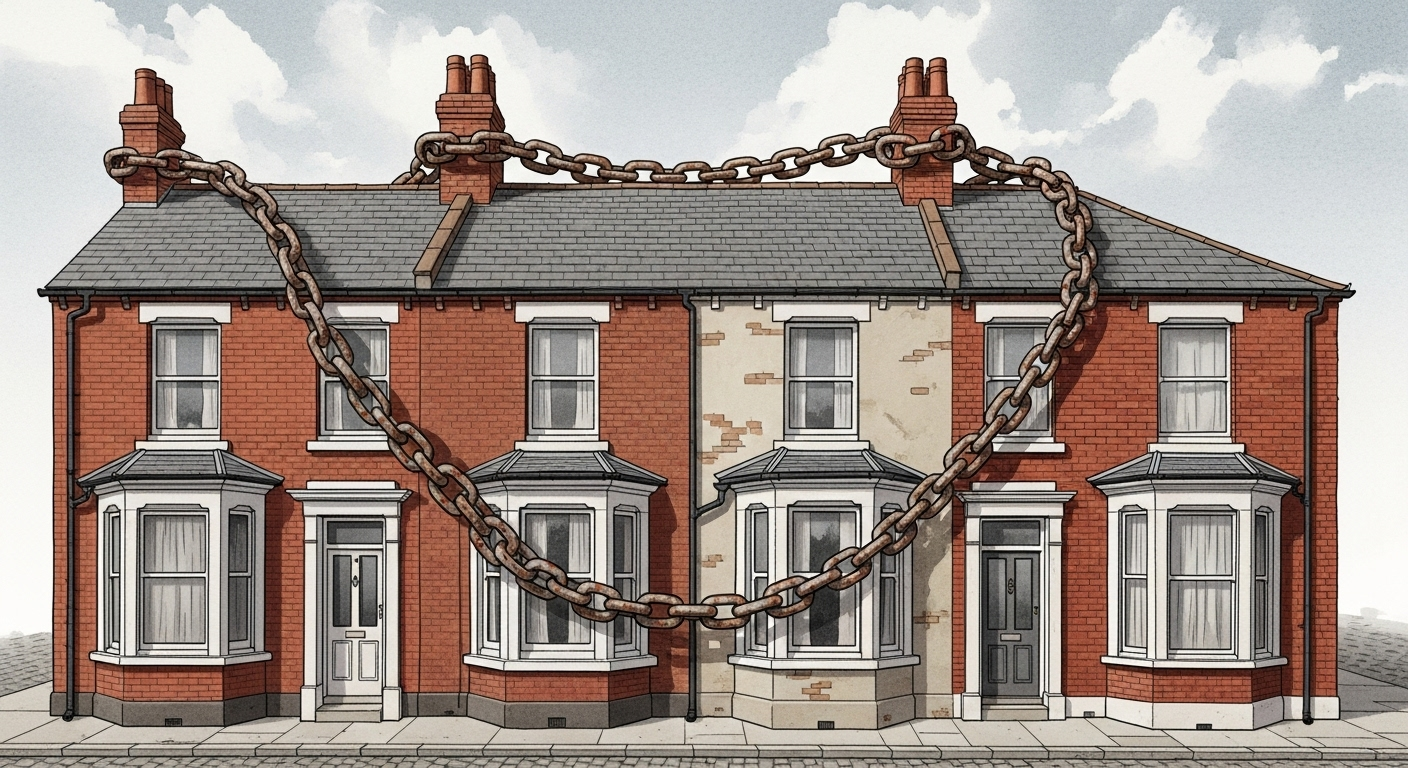Blog
Guide

Conveyancing Questions
Are all the costs covered in the quote?
We believe in transparency and that is why you can get an instant quote for most circumstances which is itemised. The price you are quoted for legal work will be the price you pay unless any non standard legal work is needed during the course of the transaction. We would contact you as soon as this became apparent.
What does exchanging contracts mean?
The exchange of contracts actually happens over the phone once an offer has been accepted, searches are completed, the deposit secured and agreement of a completion date. The solicitors read the contracts to each other over the phone to check they are identical and agree that exchange has taken place. Contracts are then exchanged physically by post and the deposit for the property is paid. Both parties are then legally bound to buy or sell the property on a certain date and could lose their deposit (if you are the buyer) and face court action if this does not happen.
Do I need a local conveyancer?
No. You do not need to use a local conveyancer. A solicitor’s local knowledge of the area is always something that could prove to be useful and of a benefit to you in your sale, however, conveyancing is very widely done across the country by solicitors/conveyancers for clients as a personal knowledge of the area is not specifically required. Your local conveyancer may still end up not seeing you either.
When do I pay my deposit?
You will pay your deposit to the seller’s solicitors on exchange of contracts.
How much will I need to save for a deposit?
Your mortgage deposit will normally need to be for at least 5- 20% of the value of the property you are buying. Every circumstance is different however; the size of your deposit will make a massive difference to the mortgage deal you can find. A bigger deposit gives you more options and lower rates. Plus, the bigger your deposit, the smaller your loan.
Will I have to pay any of my legal fees upfront when I instruct?
Once you have instructed us either online, via email or over the phone, we will send you a Welcome Pack which includes information relating to your sale, purchase or remortgage of the property. Once you have filled in the information required and returned it to us, you will be asked to make an initial payment towards your legal fees which will be deducted from your final bill. Full terms and conditions will be included in the welcome pack. Payments can be made by cheque, BACs transfer or over the phone.
What does my initial payment get used for?
The initial payment will be used to cover money laundering checks and to order searches. Your initial payment will be deducted from your final legal bill on completion. See full terms and conditions in your welcome pack.
Will I need to come into your offices?
You do not need to visit our offices in person. We can send all the documentation you need via email or post and discuss any queries you have by email or on the phone.
How much stamp duty will I have to pay?
You must pay Stamp Duty Land Tax (SDLT) if you buy a property or land over a certain price in England, Wales and Northern Ireland.
You can calculate the Stamp Duty amount that you will need to pay by visiting the official website https://www.tax.service.gov.uk/calculate-stamp-duty-land-tax
There are currently different rules if you’re buying your first home. You get a discount (relief) that means you pay less or no tax based on certain criteria.
SDLT no longer applies in Scotland. Instead you pay Land and Buildings Transaction Tax when you buy a property.
You pay the tax when you:
• buy a freehold property
• buy a new or existing leasehold
• buy a property through a shared ownership scheme
• are transferred land or property in exchange for payment, e.g. you take on a mortgage or buy a share in a house
Who pays the estate agent?
The seller is responsible for the Estate Agent fees. There should be a contract in place at the outset, which details fees. It is common for the contract to stipulate that the seller’s solicitor should make payments directly to the estate agent on completion.
The seller should check the amount invoices to ensure that this has been billed correctly.
Is it possible to speed up completion?
As most transactions involve two parties there is a limit to how much influence can be had over the other party in terms of timing. It is important to be realistic about timeframes so you are not disappointed. Completion can take anything from 8-14 weeks from the issue of contracts –much is dependent on the speed of responses from others.
New build purchases often require exchange within 28 days but this is often achieved by the developer providing a full information pack at the start of the process to aid the solicitor.
At what point can I pull out?
Whether you are buying or selling a home, you are free to change your mind right up to the point when the contracts are exchanged.
You are not legally bound to an offer you have made or accepted until you and the other party have exchanged contracts.
I have found a property I like, what do I do now?
We would recommend that you think about your finance options – if you need to use a mortgage then it is worth getting a Decision in Principle. Then contact Arrow Conveyancing to get the ball rolling with the legals.
Do I need a survey?
It is worth considering a survey before you purchase a home. The valuation that a mortgage lender will carry out is simply to confirm that the property is worth the amount you are paying and does not give any detail on the condition of the property. A survey will give the reassurance of a detailed view of the condition of the property and identify any areas for concern.
Why do I need to arrange building insurance before I complete?
If you are buying a freehold property, the contract is likely to put the risk of damage or destruction of the property to pass to the buyer from the point contracts are exchanged. This is so even if the property is damaged or destroyed between exchange and completion, the buyer must still complete the purchase and therefore buildings insurance must be in place.
What are searches?
These are the searches of the Land Registry and Local Authority Information which is carried out to check for any potential developments around roads, drains or mining near to the property.
What are the title deeds?
The title deeds of the property will remain with us for some months before they are sent to your lender for storage, they will keep them until the mortgage is paid off in full.
What is a remortgage?
A remortgage is the transfer of your mortgage from one lender to another or from a pre-existing deal, to a new deal provided by your current mortgage provider.
What is help to buy shared ownership?
Help to buy shared ownership is a Government scheme that helps those who would struggle to afford the mortgage on 100% of a home to get on the property ladder.
Known as Shared Ownership, this scheme offers you the chance to buy a share of your home (between 25% and 75% of the home value) and then pay rent on the remaining share.
What is the difference between freehold and leasehold?
Freehold is where you own the property outright, including the land it’s built on. If you buy a freehold, you are responsible for maintaining your property and land, so you’ll need to budget for these costs. Most houses are freehold but some might be leasehold – usually through shared-ownership schemes
Leasehold is where you own the property and its land for the length of your lease agreement with the freeholder. When the lease ends, ownership returns to the freeholder, unless you can extend the lease.
When is the Help to Buy: ISA government bonus paid?
The government bonus is paid once it is certain the transaction will go ahead. This means that your solicitor or conveyancer will claim the bonus between exchange and completion. The government bonus contributes towards your overall deposit (sometimes referred to as the ‘mortgage deposit’) and therefore increases your savings for your first home.
If you are in the situation where you need the government bonus to make up the deposit on exchange of contracts then your solicitor or conveyancer will be able to advise you on your options. In this instance your solicitor or conveyancer should be able to agree a smaller deposit at exchange with the seller; with the promise of the government bonus to follow as part of the overall deposit.
Does the Help to Buy: ISA bonus contribute towards the deposit I need to buy my first home?
Yes. The government bonus contributes towards your overall deposit (sometimes referred to as the ‘mortgage deposit’) and therefore increases your savings for your first home. When calculating the size of your mortgage, banks, building societies and credit unions will seek evidence of the funds that you have available to put towards your first home. This will include the amount that has been saved into your Help to Buy: ISA account and banks, building societies or credit unions will factor in the amount of the government bonus into their calculation of how much you need to borrow.
Should you hire movers or move yourself?
The answer is different for everyone and can depend on the time you have available, the complexity of the move and the cost.
Moving yourself is likely to be the most cost efficient method of moving in that you can minimise costs by borrowing or hiring a van. But do not underestimate the cost of your time. Would you rather be in there unpacking boxes on your first evening or still driving up and down in a van that you may not be used to driving.
Why do I need to provide certified ID?
Clients need to provide certified ID at the beginning of the conveyancing process to meet with Money Laundering Regulations. It will also reduce the risk of fraud. To certify a document you need to get a true copy of your original ID signed and dated by a professional person, like a solicitor or teacher. For more information, click here.
Have you got more questions? Please don't hesitate to ask our expert team by calling 0116 266 5394 or emailing hello@arrowconveyancing.co.uk
Disclaimer
The materials on this website do not constitute legal advice and are provided for general information only. Whether express or implied, no warranty is given concerning such materials. We shall not be liable for any technical, editorial, typographical, or other errors or omissions within the information provided on this website, nor shall we be responsible for the content of any web images or information linked to this website.
The information contained in this article does not constitute financial advice or recommendation and should not be considered as such. Arrow conveyancing does not offer financial advice and is not regulated by the Financial Conduct Authority (FCA), the authors of this article are not financial advisors and are therefore not authorised to offer financial advice.
Published on :
December 8, 2024












.png)





